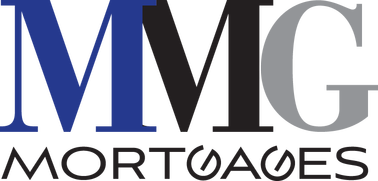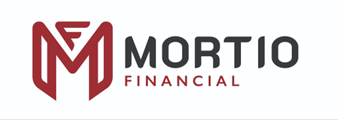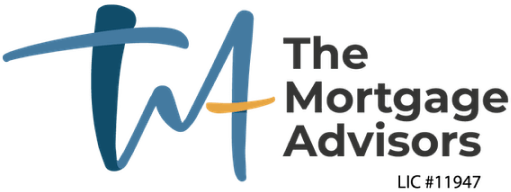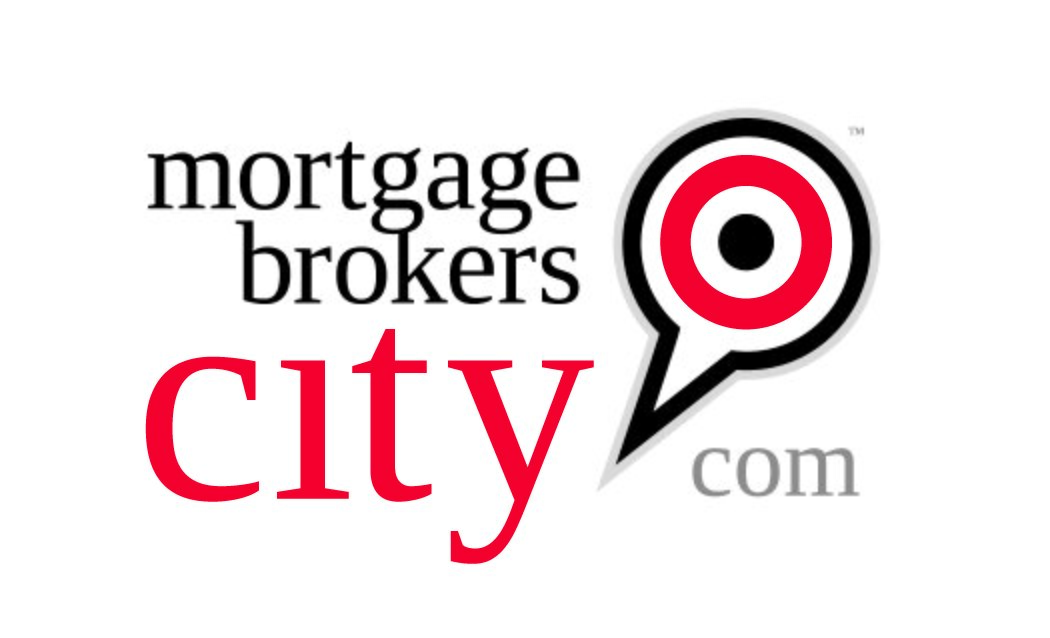Find the Best 6-month Fixed Open Mortgage Rates in Canada
Compare the most current 6-month fixed open rates from major banks, credit unions and mortgage brokers.
Rates are based on a home value of $500,000
Rates are based on a home value of $500,000
Today's Best Mortgage Rates in Canada
Evaluate Canada’s best mortgage rates in one place. You can compare the most current mortgage rates and monthly payments from 175+ banks and lenders across Canada.
Rates are based on an average mortgage of $500,000 and subject to change based on filter criteria.
| Lender
|
Insured
|
Insurable
|
Uninsured
|
|---|---|---|---|
|
MMG Mortgages
|
3.99%
$2,627.39 / month
|
4.19%
$2,681.85 / month
|
4.14%
$2,668.19 / month
|
|
Mortio Financial Corp
|
3.99%
$2,627.39 / month
|
4.24%
$2,695.56 / month
|
4.14%
$2,668.19 / month
|
|
Northwood Mortgage Ltd.
|
4.14%
$2,668.19 / month
|
4.24%
$2,695.56 / month
|
4.24%
$2,695.56 / month
|
|
Innovation Federal Credit Union
|
4.39%
$2,736.87 / month
|
4.39%
$2,736.87 / month
|
4.39%
$2,736.87 / month
|
|
True North Mortgage
|
2.99%
$2,363.66 / month
|
2.99%
$2,363.66 / month
|
2.99%
$2,363.66 / month
|
|
The Mortgage Advisors
|
3.87%
$2,594.98 / month
|
3.87%
$2,594.98 / month
|
3.87%
$2,594.98 / month
|
|
Nesto
|
3.91%
$2,605.76 / month
|
3.91%
$2,605.76 / month
|
3.91%
$2,605.76 / month
|
|
Hypotheca
|
3.94%
$2,613.86 / month
|
3.94%
$2,613.86 / month
|
3.94%
$2,613.86 / month
|
|
MortgagestoGo
|
3.94%
$2,613.86 / month
|
3.94%
$2,613.86 / month
|
3.94%
$2,613.86 / month
|
|
One Link Mortgage & Financial
|
3.95%
$2,616.57 / month
|
3.95%
$2,616.57 / month
|
3.95%
$2,616.57 / month
|
|
Mainstreet Credit Union
|
3.99%
$2,627.39 / month
|
3.99%
$2,627.39 / month
|
3.99%
$2,627.39 / month
|
|
The Police Credit Union
|
3.99%
$2,627.39 / month
|
3.99%
$2,627.39 / month
|
3.99%
$2,627.39 / month
|
|
Monster Mortgage
|
3.99%
$2,627.39 / month
|
3.99%
$2,627.39 / month
|
3.99%
$2,627.39 / month
|
|
Northern Birch Credit Union
|
3.99%
$2,627.39 / month
|
3.99%
$2,627.39 / month
|
3.99%
$2,627.39 / month
|
|
City Wide Financial Corp
|
3.99%
$2,627.39 / month
|
3.99%
$2,627.39 / month
|
3.99%
$2,627.39 / month
|
|
Sudbury Credit Union
|
3.99%
$2,627.39 / month
|
3.99%
$2,627.39 / month
|
3.99%
$2,627.39 / month
|
|
East Coast Mortgage Brokers
|
4%
$2,630.10 / month
|
4%
$2,630.10 / month
|
4%
$2,630.10 / month
|
|
Mortgage Brokers City Inc
|
4.04%
$2,640.95 / month
|
4.04%
$2,640.95 / month
|
4.04%
$2,640.95 / month
|
|
Prospera Credit Union
|
4.04%
$2,640.95 / month
|
4.04%
$2,640.95 / month
|
4.04%
$2,640.95 / month
|
|
First Credit Union
|
4.29%
$2,709.29 / month
|
4.29%
$2,709.29 / month
|
4.29%
$2,709.29 / month
|
|
First National Financial
|
4.34%
$2,723.07 / month
|
4.34%
$2,723.07 / month
|
4.34%
$2,723.07 / month
|
Jump straight to...
- What is a 6-month fixed open mortgage rate?
- Open vs. Closed mortgages
- Why are 6-month fixed open rates popular now?
- Pros and cons of a 6-month fixed open mortgage
- What causes changes in 6-month fixed open rates?
- 6-month fixed open rate predictions
- 6-month fixed open mortgage tips
- Frequently asked questions about 6-month fixed open rate mortgages
What is a 6-month fixed open mortgage rate?
A 6-month fixed open mortgage rate is the shortest-term mortgage rate you can get from the bank. It is generally used by people who need financing for a short period of time, and who want the flexibility to pay the loan early, if possible.
Because there are no early repayment penalties for open mortgages banks tend to charge a higher interest rate for that perk than they would with a mortgage rate that does have penalties.
Open vs. Closed mortgages
An open mortgage allows you to repay your loan at any time without penalty, as well as no penalty for early or extra payments. The terms generally go from 6 months to 5 years, can be switched to any other type of mortgage and in some cases, are transferable.
A closed mortgage, generally from 6 months to 10 years, has the predictability of a payment schedule, is cheaper than an open mortgage, and will allow lump sum payments (usually 20% per year of the original mortgage).
Why are 6-month fixed open rates popular now?
The Bank of Canada has been raising interest rates since spring 2022 to quell the tide of inflation that has permeated all parts of the economy. As rates have gone up, borrowing costs have gone up for homebuyers, as well as homeowners looking to renew upcoming mortgages.
Previously, homeowners in the past 5 to 10 years have seen historically low interest rates and were able to purchase homes based on the predictable nature of those rates and the payments they would have to make. With interest rates high, but inflation having already peaked, borrowers are looking for signs that rates may come down in the last quarter of 2023. Having a short term 6-month fixed open mortgage rates gives them the flexibility to avoid being locked into a high rate should the Bank of Canada again start to ease up on interest rate hikes.
Pros and cons of a 6-month fixed open mortgage
Pros
The main pro of a 6-month fixed open mortgage is flexibility. People who have an income that varies (self-employed, for example) will be able to get the financing they need without locking into a longer contract in what could be an uncertain time.
6-month fixed open mortgages also provide flexibility in payment and offer no penalty for full payment of the loan. This works well as a bridge if you are between two mortgages, for example. It can also be cheaper than refinancing your mortgage in the short term.
Cons
The main con of a 6-month fixed open mortgage is the interest rate. You pay for the flexibility of the loan and the ability to prepay without penalty. Many banks will charge 1% interest or more on top of the normal rate.
What causes changes in 6-month fixed open rates?
All interest rates are sensitive to market and economic conditions. The Bank of Canada will raise or lower overnight lending rates depending on issues such as inflation, national debt and general economic forces.
6-month fixed open rates are no exception. They will be influenced by the same factors but will be even higher than average rates. The reason for that is you are paying for the flexibility to make a lump same payment in full without penalties.
Bank of Canada overnight rate vs. 6-month Canadian treasury bill yields
| Date | Bank of Canada overnight rate | 6-month treasury bills |
| 2/2/2022 | 0.25 | 0.58 |
| 3/9/2022 | 0.5 | 0.83 |
| 4/20/2022 | 1 | 1.63 |
| 6/8/2022 | 1.5 | 2.33 |
| 7/20/2022 | 2.5 | 3.05 |
| 9/14/2022 | 3.25 | 3.63 |
| 11/2/2022 | 3.75 | 4.03 |
| 12/14/2022 | 4.25 | 4.23 |
Source: Bank of Canada
Treasury bills are short-term obligations issued by the Government of Canada regularly for terms of three months, six months, and one year,. These bills are issued at a discount, pay no coupon, and mature at par. Prices are calculated on a simple interest basis and an actual/365-day count basis is used. The treasury bills market remains quite liquid, with an average daily trading volume of approximately $4.24 billion.
The Bank of Canada's overnight rate directly influences the yield of Treasury bills as they are considered risk-free investments. As the overnight rate increases, so do the yields on Treasury bills, making them more attractive to investors. This results in increased demand for the bills and pushes up their prices.
Higher overnight rates can lead to higher treasury bill yields, as investors demand a higher return for lending their money to the government. Higher yields can also make it more expensive for the government to borrow money, as they have to pay a higher rate of return to attract investors.
Fixed mortgage rates, on the other hand, are influenced by the overnight rate indirectly. Banks use the overnight rate as a benchmark when setting the interest rates for their mortgage products. When the Bank of Canada raises the overnight rate, it signals that borrowing costs are increasing, leading to an increase in fixed mortgage rates offered by banks. This, in turn, affects the cost of borrowing for homeowners and potential homebuyers
Treasury bill yields can impact 6-months fixed rate mortgage rates.
6-month fixed open rate predictions
Both in Canada and around the world inflation rates are peaking and/or going down in certain areas of the economy. This has an influence on where central banks will take interest rates over the next few quarters. While there may be one more interest rate hike in the Bank of Canada’s arsenal, according to economists, many expect that the harsh measures are done for now.
Rates will remain relatively high while inflation is subsiding. As they come down, expect overnight lending rates to come down and ultimately the rates for 6-month open mortgages.
6-month fixed open mortgage tips
- Consider your situation: If you need a short-term loan, for example to bridge between to larger loans, or you are thinking of refinancing and are still unsure, and are prepared to pay a bit more for flexibility, a 6-month open mortgage rate might be right for you.
- Talk to your bank: While the flexibility of a 6-month fixed open mortgage rate may seem attractive, a renegotiation of your current mortgage or refinancing may be more appropriate for your situation. Talk to your mortgage specialist about your needs and what is best for you.
- Shop around: Comparison sites like RATESDOTCA will provide you with instant quotes and the ability to see who has the best current 6-month fixed open mortgage rates to meet your needs.
- Understand the differences: 6-month fixed open mortgage rates come with conditions, like a higher interest rate. Make sure you know what your payments will look like and if you can afford them before you sign on the dotted line.
Frequently asked questions about 6-month open rate mortgages
Answers to all your questions related to 6-month open rate mortgages are here.
How can I find the best 6-month fixed open mortgage rate in Canada?
Comparison shop. RATESDOTCA will provide you information on current 6-month fixed open mortgage rates at the click of a button. You’ll get up to date information and the ability to see what each of the top banks are offering customers.
What happens at the end of a 6-month fixed open mortgage?
The best part of a 6-month fixed open mortgage rate is it can be renegotiated or refinanced at any time without penalty. At the end of the term, you can choose to pay it in full or renegotiate for another term.
Will 6-month mortgage rates be higher than other rates?
Yes. 6-month fixed open mortgage rates are higher than other rates. The reason for this is they offer more flexibility and the ability to repay the entire loan without penalty. These are perks the bank charges for.
Can you refinance a 6-month fixed open mortgage?
Yes. 6-month-fixed open mortgage rates can be refinanced at any time. They are flexible loans offering that ability. They can also be paid in full at any time.
What is a mortgage rate lock?
Banks allow borrowers to lock in mortgage rates from the time of the offer on a home to the closing date. Generally, there is a specified amount of time the lock will be held. While they can provide peace of mind knowing what your payments will be, there is the off chance the rate could also go down after you’ve locked one in. Know your budget and circumstances before locking in a mortgage rate.




























